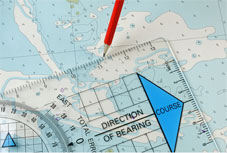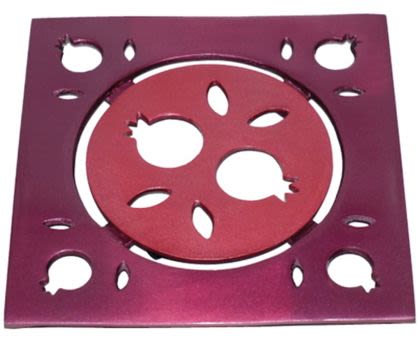
Matot: Parental Pathfinding
Moses warns the sons of Gad, Reuven and Menashe to do their part in conquering the Promised Land, and not to repeat the mistake of their parents...

"Behold – you have risen up in place of your fathers, a society of sinful people…"(Numbers 32:14).
The Gemara tells the tragic story of Miriam, a daughter of the priestly clan of Bilega[1]. She abandoned her Judaism and married a Greek officer during the Hellenistic Period when the Seleucid Greeks defiled the Holy Temple before the Maccabean uprising. When the Greeks entered the Holy of Holies, she accompanied them. She kicked the holy altar and blasphemed in the worst way. After the Maccabees overcame the Greeks and purified the Holy Temple, the entire priestly clan of Bilega – one of the 24 families of Kohanim – was slapped with a series of disparaging sanctions for posterity.
The Gemara asks, why punish the entire clan for the delinquency of one of its daughters? Is that fair?
The Gemara answers its own question with a folk-expression: what a child says in the marketplace is what he heard from his parents at home. Rashi remarks that Miriam's misdeeds were the result of hearing her father disdain the priestly duties. As Miriam was a mere symptom of the Bilega clan's lackadaisical attitude toward  their Divine service, the entire clan was punished, and justifiably so.
their Divine service, the entire clan was punished, and justifiably so.
Moses alludes to the known phenomenon of sons following in the footsteps of fathers when he chastises the tribes of Reuven, Gad and Menashe, saying, "you have risen up in place of your fathers, a society of sinful people". He warned them to fulfill their obligation in conquering the Land of Israel and not to act as their parents did in the sin of the spies.
A small parental deviation becomes greater and greater with each successive generation. As in navigation, the further one goes from the point of origin, the greater a given navigational error becomes. Here's how:
In ballistics and navigation, the circle is divided into 6400 mils, a system more accurate and less complicated than the 360-degree method. This system is very tidy in the metric system, for a navigational error of one mil will yield an error of one meter for every kilometer away from the point of origin. So let's suppose that a pilot who takes off from Kennedy Airport in New York wants to reach Miami International Airport, a distance of 1700 kilometers. If he's careless in charting his course and makes a "negligible" mistake of a "mere" ten mils, he'll only be a kilometer off course by the time he passes over Atlantic City, but by the time he reaches the vicinity of Miami, he'll miss his destination by an entire 17 kilometers (10 mils x 1700 kilometers = 17,000 meters, or 17 kilometers). The further the pilot leaves the point of origin, the greater the given mistake becomes.
By the same token, a minor mistake may seem insignificant, but as generations progress, the deviation from tradition becomes greater and greater.
Yet, children's deviation from parental paths has a strongly positive side as well. When one generation strengthens itself slightly in Judaism, subsequent generations strengthen themselves more and more. Parental pathfinding gives direction to children, for better and for worse.
We ask ourselves: where did the Baalei Teshuva, the newly observant Jews of this generation, get the courage and strength to cast away old lifestyles for Torah, often paying a dear personal price? Rabbi Elazar Brizel of saintly and blessed memory, one of Jerusalem's lofty tzaddikim of the previous generation, told me that no Baal Teshuva can attribute his spiritual prowess to himself, for everyone had a righteous ancestor who served Hashem with dedication. This righteous ancestor was the pathfinder in whose virtue the Ball Teshuva received his or her spiritual awakening. The deeds of parents pave the way for the all subsequent generations.












Tell us what you think!
Thank you for your comment!
It will be published after approval by the Editor.